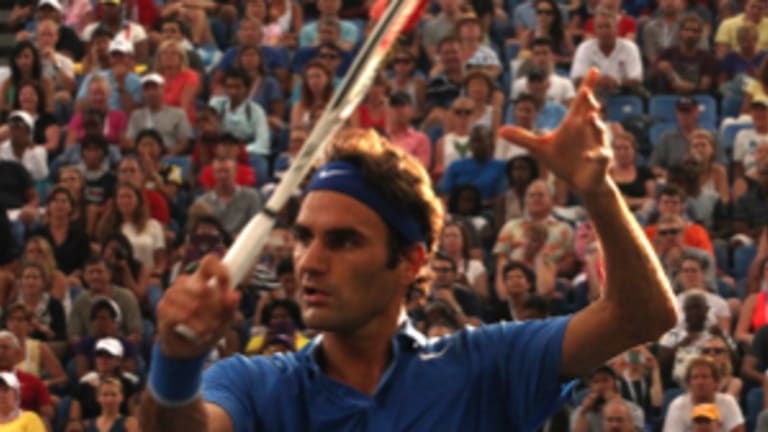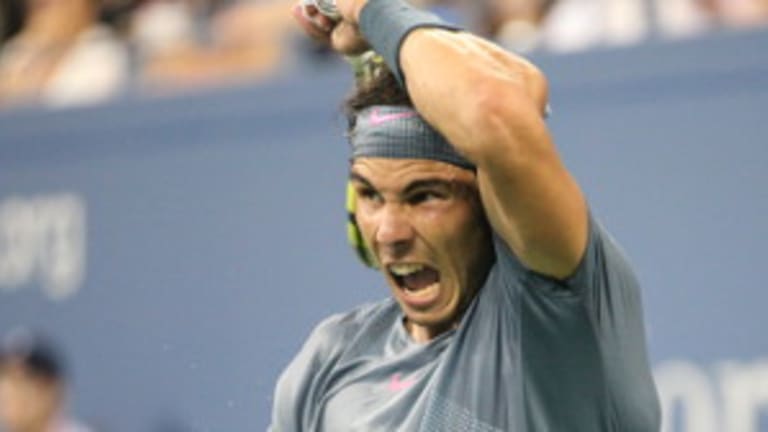NEW YORK—Rafael Nadal has said many times that he wishes he had Roger Federer’s gifts, his easy way of gliding around a court and flicking winners seemingly at his leisure. But on Monday at the U.S. Open, when Federer started his match in the late afternoon and Nadal followed him a couple of hours later, Rafa was probably happy to play exactly the way he does. Both players faced the same heavy, humid conditions, which made hitting through the court difficult. Both faced inspired opponents who were moving and smacking the ball about as well as they can. And both, at first, couldn’t find the solution to their nerves—or whatever it was that ailed them—on break points. But it was Nadal whose grinding, physical game allowed him to win anyway, while on this day Federer never found the key to unlock his fabled talent.
Federer lost for the first time in 11 matches to Tommy Robredo, and the 7-6 (3), 6-3, 6-4 scoreline made it appear closer than it was. The two had been scheduled to play the final day match in Ashe Stadium, but a four-hour rain delay forced them over to the more intimate confines of Louis Armstrong Stadium. Federer hadn’t played a match on this chaotic court since 2006. Some thought he looked boxed in, unable to spread his wings. But location, according to Federer, wasn’t the problem. In fact, he had hoped it might be a solution. He said the surface there is faster than it is in Ashe, which is to his liking, and that the fans might give him some energy.
“I’ve been practicing on Armstrong,” Federer said, “so there’s no excuse there. I was prepared for it. I was even happy about it. I thought it was going to be a great atmosphere, that I could take advantage of maybe the fact that people were really going to get behind me. But unfortunately I didn’t show the game that they could really get into and excited about.”
Some thought the long delay may have affected him adversely, but Federer slapped that idea away, too.
“I’ve waited for so many matches throughout my career. That’s definitely the last excuse you find, you know.”
Still others believed his back, which sidelined him earlier in the summer, was acting up. Not according to the Fed:
“No, no issue,” he said flatly.

